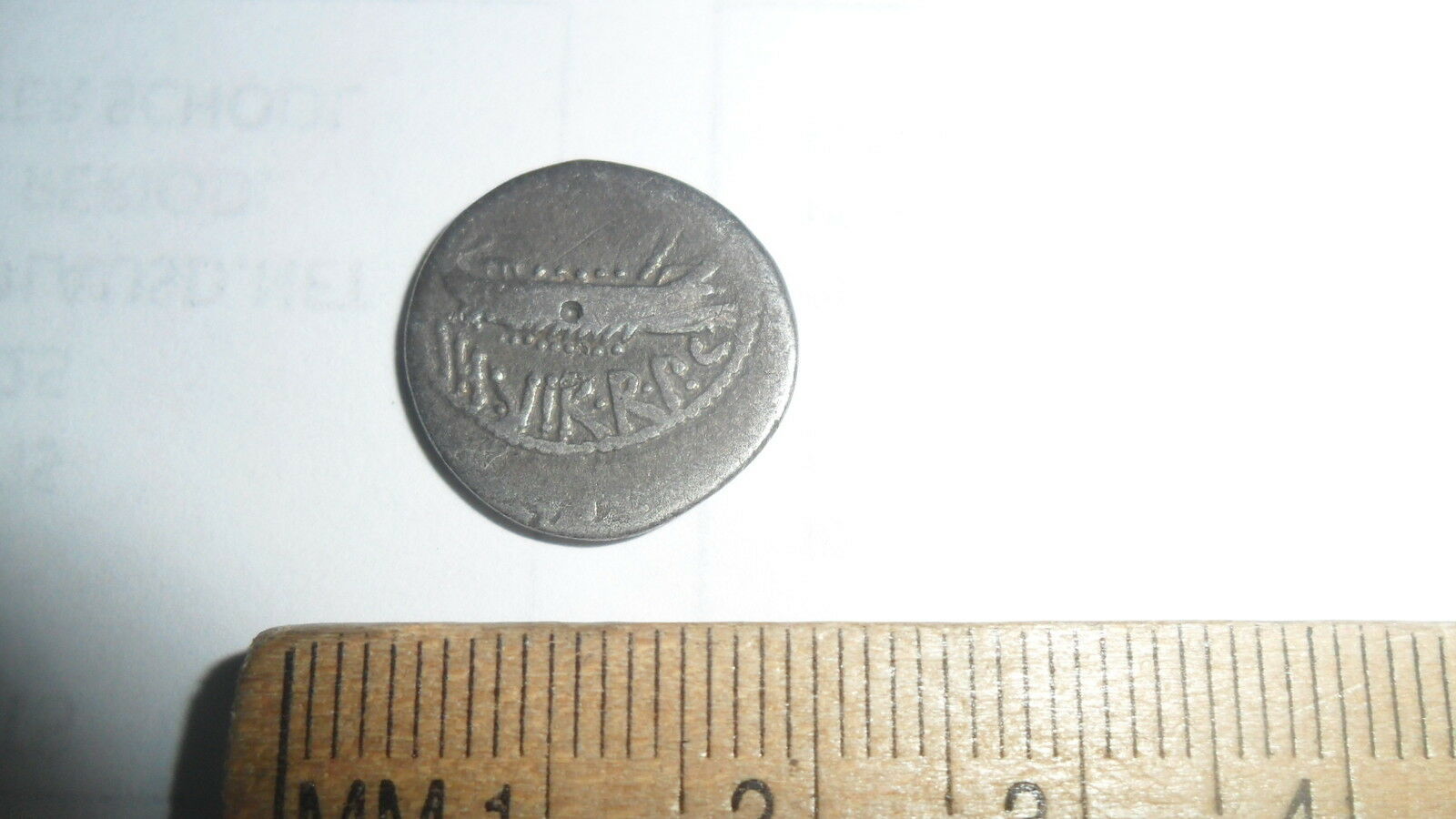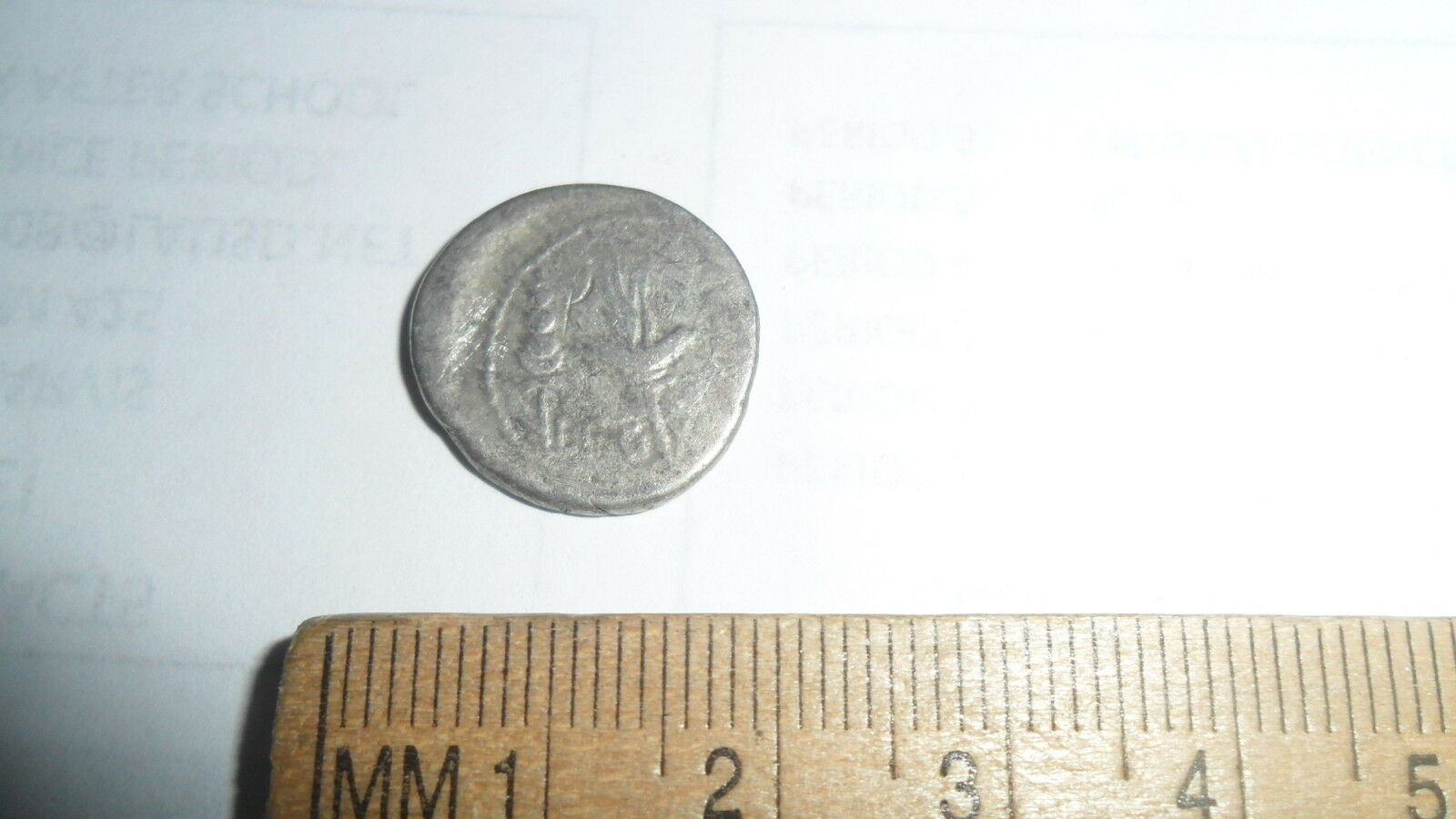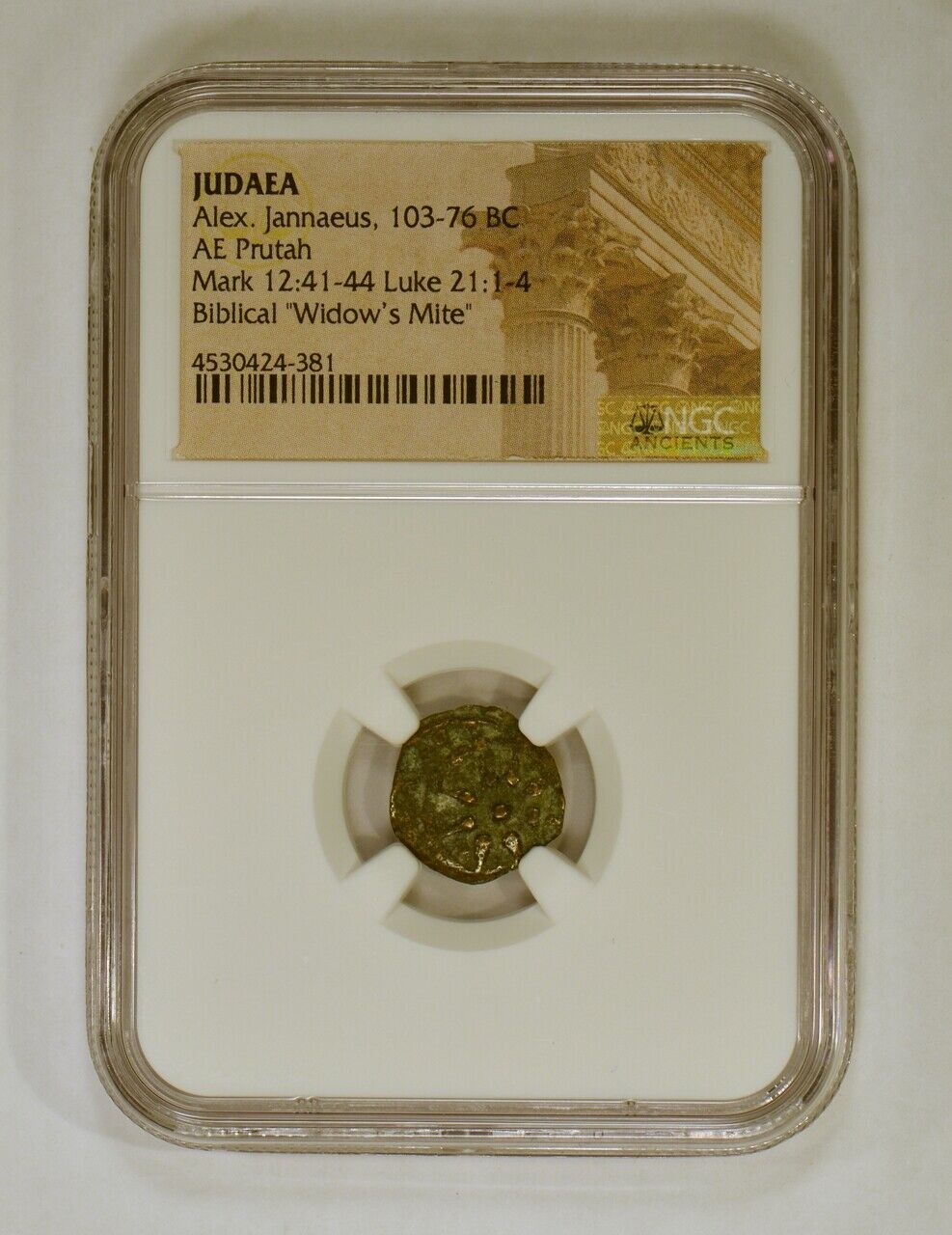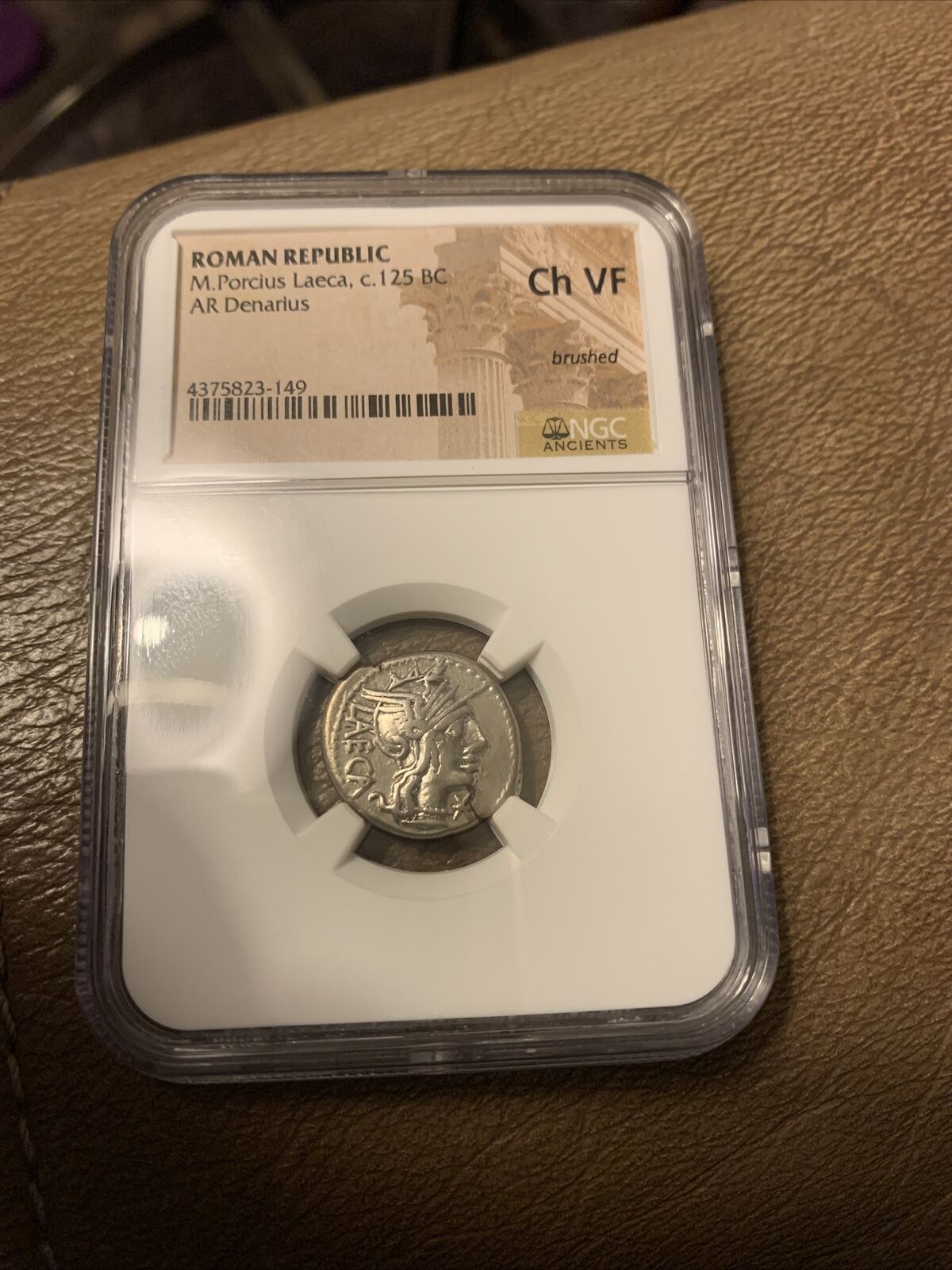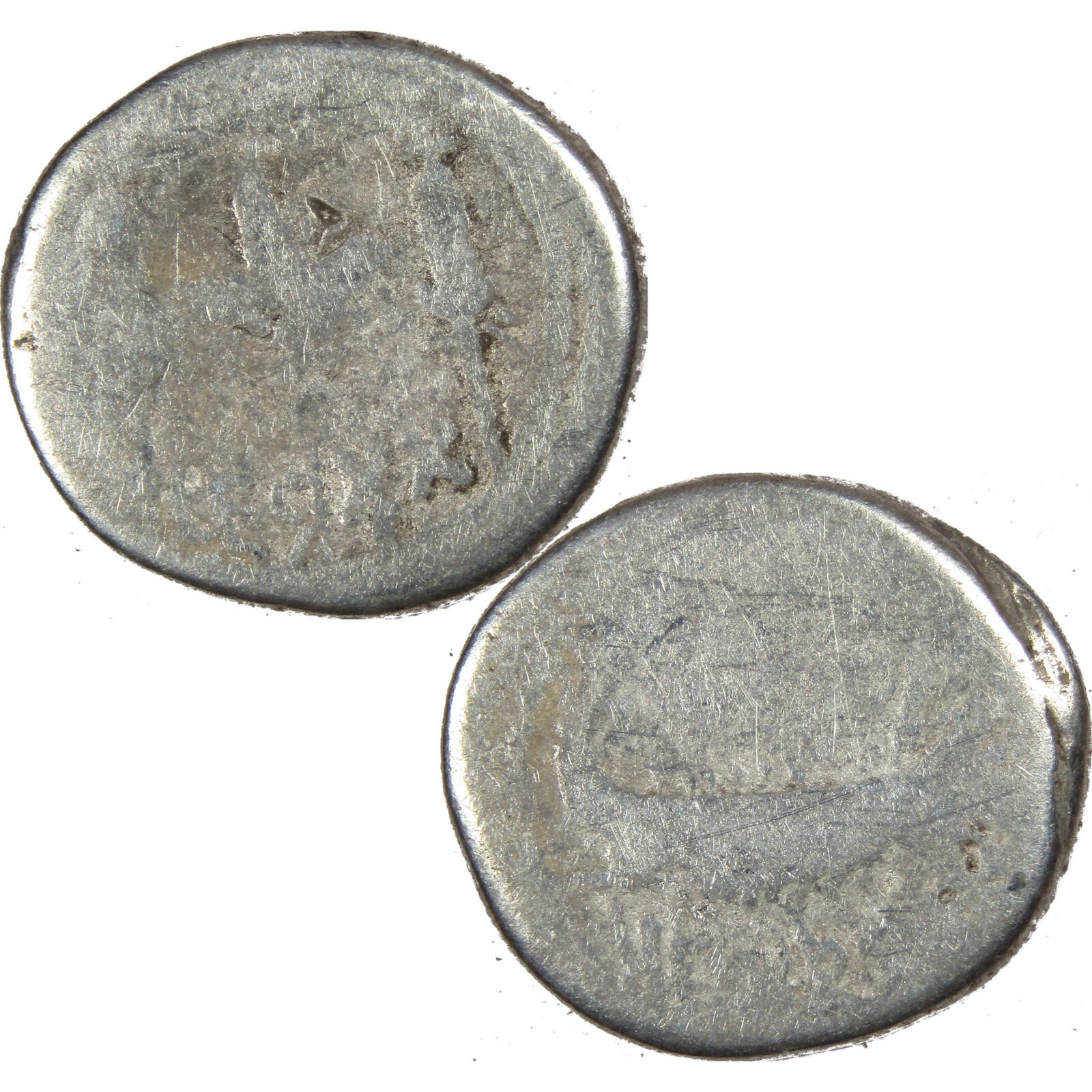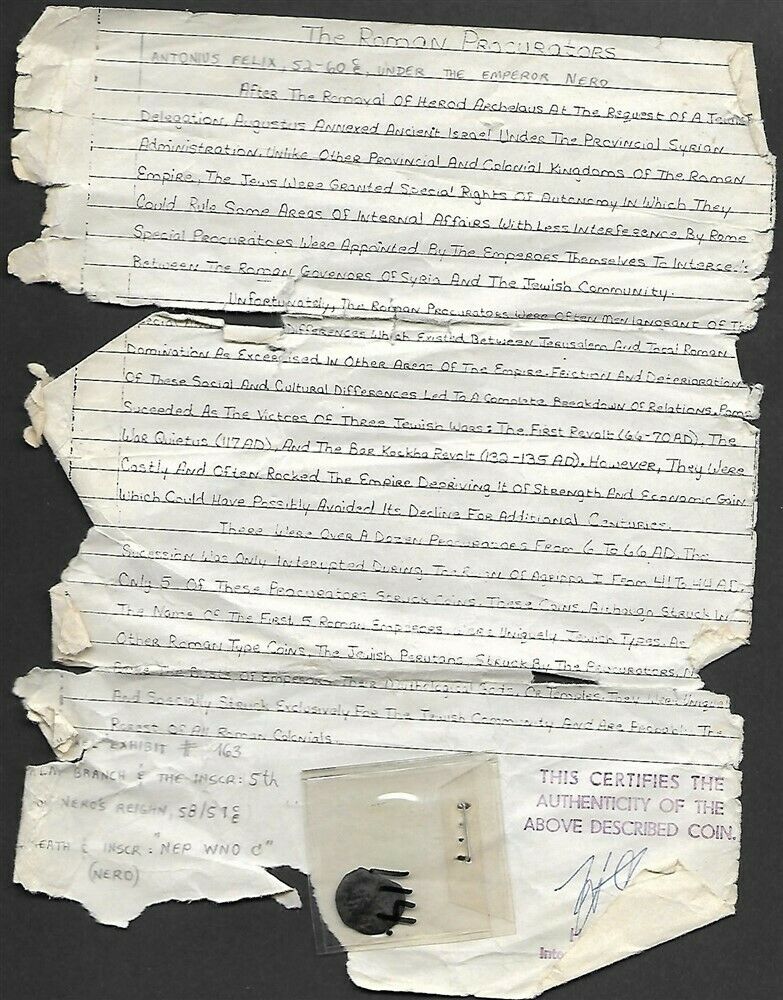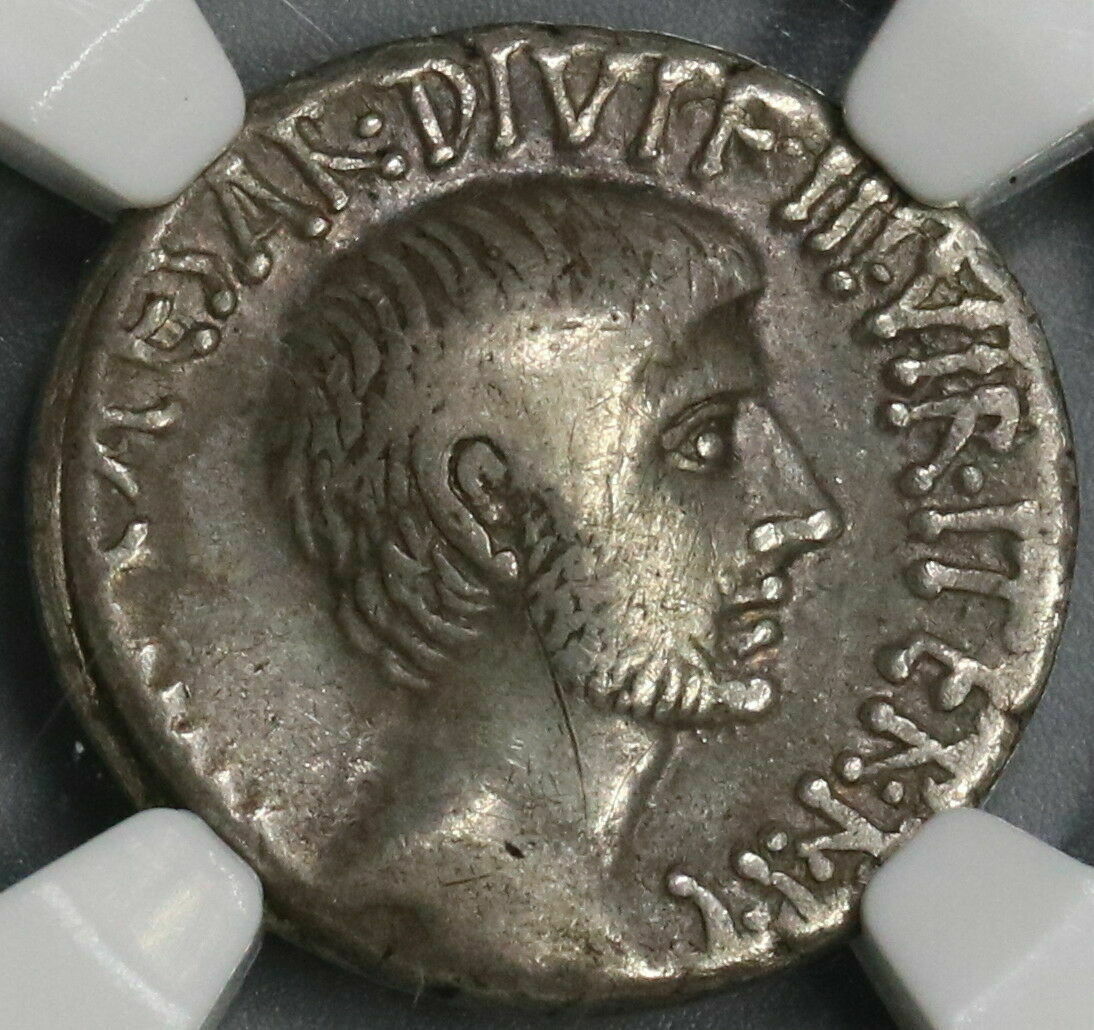-40%
RARE ITEMS An AR Denarius of M. Scaurus & P. Hypsaeus NGC CH VF
$ 147.84
- Description
- Size Guide
Description
c. 58 B.C.ex. New York private collection
NGC graded, Choice Very Fine.
obv. King Aretas of Nabataea, in attitude of supplication, kneeling right
beside camel, presenting olive-branch, M•SCAVR AED CVR above,
S C before, REX ARETAS in exergue
rev. Jupiter in quadriga left, brandishing thunderbolt in right hand, scorpion
below horses, P•HVPSAEVS AED CVR above, CAPTV on right
Marcus Aemilius Scaurus (born c. 163 BC – died 89 BC) was a Roman statesman who served as consul in 115 BC. He was also a long-standing princeps senatus, occupying the post from 115 until his death in 89, and as such was widely considered one of the most prestigious and influential politicians of the Late Republic.
Scaurus was born c. 163 BC into a prestigious but impoverished patrician family: Cicero for instance comments that Scaurus was so poor that he was effectively a novus homo. In order to maintain the family lifestyle, his father became a coal-dealer. However, Scaurus himself declined any commercial activities (forbidden for senators) and embarked on a political life.
Scaurus’ cursus honorum started in 126 BC when he served as a military tribune in Spain. He next served as curule aedile in charge of the public games in c.123 BC, and afterwards as praetor in 120 BC.
After a failed attempt the previous year, Scaurus was elected consul for 115 BC with Marcus Caecilius Metellus as his junior colleague. During his year in office, he passed legislation including a sumptuary law. He also conducted a successful campaign against tribes in the Alps, for which he was voted a triumph by the Senate.
In the same year, Scaurus was nominated and confirmed as princeps senatus by the Senate, an office which he held until his death. This was the foremost honour during this period, and usually went to the most senior patrician: for the relatively junior Scaurus to receive it was therefore considered somewhat of a coup.
As a senior member of the Roman senate, Scaurus was often sent abroad to settle disputes amongst foreign kings. At the start of the Jugurthine War (112–106 BC), he was sent as envoy to Numidia with orders for Jugurtha to cease hostilities against the Numidian king Adherbal. When Jugurtha refused, war was declared and the consul Lucius Calpurnius Bestia was sent to Africa.
Scaurus served as a senior officer (legatus) for Bestia during the first year of the war (112 BC). According to the historian Sallust (whose account is notably hostile towards Scaurus), both Bestia and Scaurus accepted bribes from Jugurtha to end the war early. When these bribes became known back in Rome, the tribune Gaius Mamilius Limetanus passed a law creating a special court (the Mamilian commission) to prosecute Bestia and other politicians who were suspected of accepting bribes. According to Sallust, Scaurus not only avoided prosecution but even managed to get himself elected as one of the three judges (quaesitores) for the trial. However, some scholars believe Sallust has confused Scaurus with the similarly-named Marcus Aurelius Scaurus.
In 109 BC, Scaurus was elected censor in partnership with Marcus Livius Drusus. As censor, he ordered the construction of the Via Aemilia Scaura and restored several bridges. However, when Drusus suddenly died during their year of office, Scaurus was forced to abdicate his censorship.[i]
In 104 BC, Scaurus became responsible for Rome's grain supply, the cura annonae. However, Scaurus' appointment was at the expense of Lucius Appuleius Saturninus, at the time a quaestor, who had previously been in charge of the supply. Cicero judges that the loss of the cura annonae was the spark that drove Saturninus towards popularis demagoguery.
Scaurus was throughout his political career the leader of the conservative elements of the Senate. In 103 BC, he lead the opposition against the popularis tribune Gaius Norbanus. Norbanus was prosecuting Quintus Servilius Caepio, the consul of 106 BC, after the latter's catastrophic loss at the Battle of Arausio (and, more specifically, for stealing the Gold of Tolosa). Alongside the tribune Titus Didius, Scaurus attempted to rally the conservative elements of the Senate against Norbanus, but was driven back through violence: Scaurus was even struck in the head by a stone. Norbanus was eventually tried in c.95 BC for this act of violence.
In 100 BC, during the height of the violence brought about by Saturninus and Gaius Servilius Glaucia, it was Scaurus who proposed the so-called 'final decree' (senatus consultum ultimum) in the Senate. This decree ordered the consul Gaius Marius to put down Saturninus and Glaucia, and they were soon lynched along with their followers in the Curia Hostilia.
In 92 BC, Scaurus was brought to trial by Quintus Servilius Caepio the Younger for provincial extortion and, it seems, for taking bribes from Mithridates VI of Pontus. However, Scaurus managed to issue a counter-prosecution against Caepio, thereby bringing the process to a legal standstill.
This affair drove Scaurus to support the legislative reforms of Marcus Livius Drusus the Younger, tribune in 91 BC and the son of Scaurus' former colleague as censor. Alongside Lucius Licinius Crassus, Scaurus was Drusus' main conservative champion and helped pass his extensive legislative programme. However, after the sudden death of Crassus in September 91 BC, Drusus rapidly lost his support in the Senate, and the consul Lucius Marcius Philippus succeeded in abrogating Drusus' laws on religious technicalities.
After Drusus' assassination and the outbreak of the Social War (91-88 BC), Scaurus was prosecuted in 90 BC under the special court of the tribune Quintus Varius Severus, which had been set up to prosecute anyone suspected of rousing the Italians to revolt. However, Scaurus was able to achieve his own acquittal on the basis of his auctoritas, asking the audience whether they would believe the word of a provincial (Varius was from Spain) or of Scaurus himself, the princeps senates. The exact date of Scaurus' death is unknown. However, since his wife Caecilia Metella Dalmatica married Sulla in 88 BC, Scaurus probably died in 89 BC.
Publius Plautius Hupsaeus (Hypsaeus) was a politician of the Roman Republic.
Praetor and ally of Pompey, Hypsaeus was later tried under Pompey's retroactive laws on violence and corruption (52 BC) for bribery. In 53 BC he was a candidate for the consular position, against Milo. Hypsaeus' gangs were reinforced by Clodius and fights broke out between the competing parties.
This coin is in an exceptional condition state for this type of uncommon issue. A rare, detailed example.
Authenticity guaranteed. Everything sold by us has been legally acquired and comes with an unconditional lifetime guarantee. Additionally, a
ll of our items are legal to buy/sell under U.S. Statute covering cultural patrimony Code 2600, Chapter 14
.
Welcome to Rare Items- we are based in Manhattan, NY, and have a showroom on Museum Mile on the famous 5th Avenue. We have been selling on eBay for 20 years now, and our account specializes in carefully vetted works of antiquity, ancient jewelry, ancient coins and a variety of other coveted goods. Take a look at our listings and buy with confidence! We have the benefit of offering our objects at lower, auction type prices without the extra fees that other sellers tend to charge. If the idea of a good deal appeals to you, then you should definitely check out our offerings on here. Customer satisfaction always comes first, and our perfect selling feedback speaks for itself.





